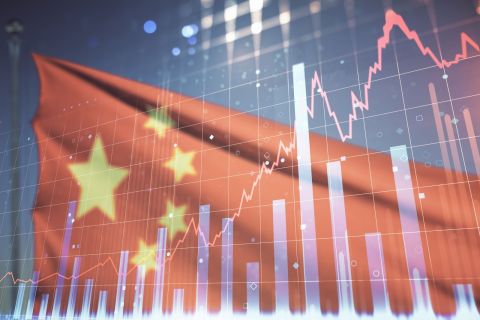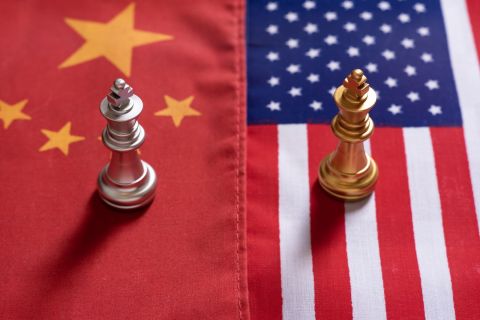China’s sluggish economic recovery will deliver target growth in 2023, stimuli to retain expansion into 2024
ALBAWABA – Chinese President Xi Jinping announced a bundle of new stimuli on Tuesday in a bid to shore up growth in China’s sluggish economic recovery for 2024, news agencies reported.
Xi’s announcements mark a shift away from the traditional growth model, which has been in place for nearly three decades, according to Bloomberg,
The government increased its headline deficit and introduced a one-trillion-Yuan budget boost, expressing willingness to exceed the debt-to-Gross Domestic Product (GDP) ceiling, to boost China’s sluggish economic recovery.
In total, China will issue bonds worth $137 billion, state media reported, which will be used to rebuild disaster areas and improving infrastructure.
For some 30 years, China has maintained a maximum debt ceiling of less than 3 percent.
On Tuesday, however, the government announced it will be raising the central government debt limit to 3 percent, signalling its readiness to raise it further, if need be.
This is the latest in a series of stimuli, including sector-specific and smaller measures, as well as interest rate reductions, aimed at speeding up China’s sluggish economic recovery.
Central gov’t takes on more debt to stimulate China’s sluggish economic recovery
China has relied primarily on local government debt to boost economic activity. Today, however, the government has shifted towards expanding sovereign debt in a bid to finance a massive macroeconomic boost.
“The extra central government bonds and early local government bond issuance should ensure the rebound that started in August continues into the new year,” Adam Wolfe, emerging markets economist at Absolute Strategy Research, told Bloomberg.

China’s sluggish economic recovery is being weighed by a debt-laden property structure - Shutterstock
Meanwhile, China is grappling with a protracted property crisis and a crunch in the $9 trillion local government debt market, in addition to the threat of deflation, which complicates the matter.
The nation’s economy-wide measure of prices, the GDP deflator, was negative for two consecutive quarters for the first time since 2015, Bloomberg reported.
Notably, deflation indicates a shrinking economy.
Xi’s stimuli signal good news for China’s sluggish economic recovery, Asia markets
China’s new stimuli sent Asian stocks soaring on Wednesday, with the MSCI's broadest index of Asia-Pacific shares outside Japan up 0.6 percent, after hitting its lowest since last November on Tuesday.
Japan's Nikkei rose 1.2 percent while China’s Hang Seng and blue-chip CSI300 index, which had been pinned near four-year lows, climbed more than 1 percent and 0.5 percent, as reported by Reuters.
Xi also made an unprecedented trip to the central bank — sending a powerful message about his focus on the economy.
China’s new stimuli come even after strong economic data published this month put the government on target for its 5 percent goal this year, Bloomberg highlighted.
The Chinese leadership will next week hold a twice-a-decade financial policy gathering that may provide more policy clarity.
China has rarely adjusted the budget mid-year. The government did so almost exclusively in periods of crisis, including 2008, in the aftermath of the Sichuan earthquake and in the wake of the Asian financial crisis in the late 1990s.









